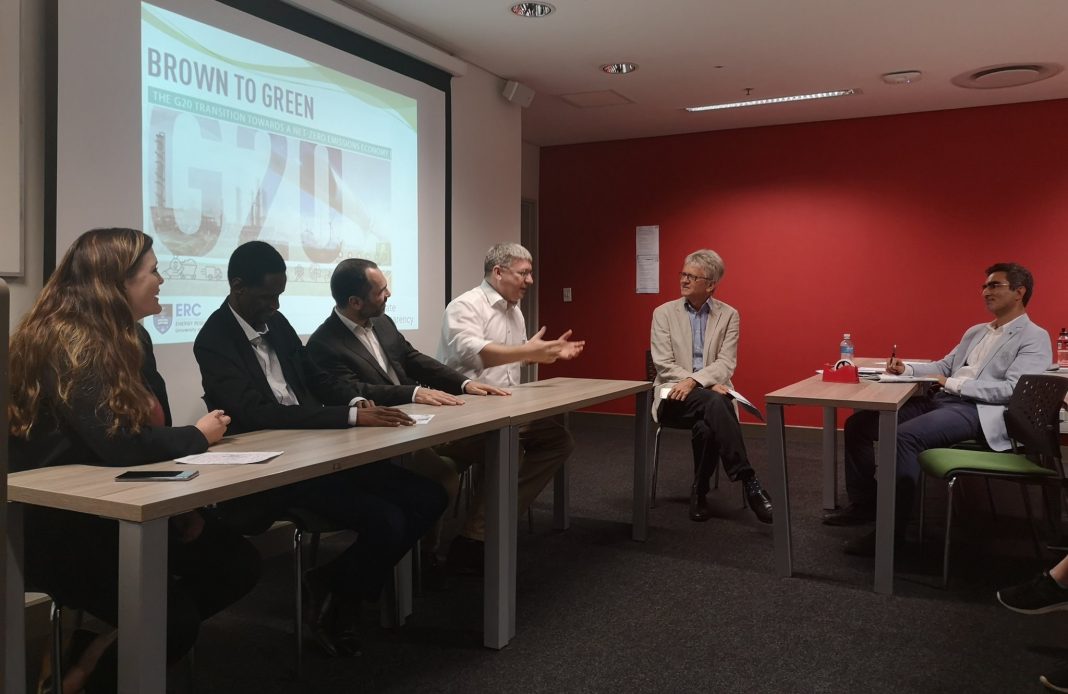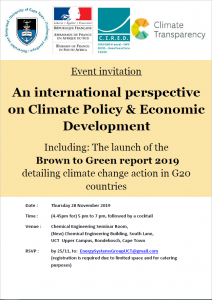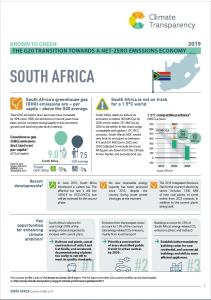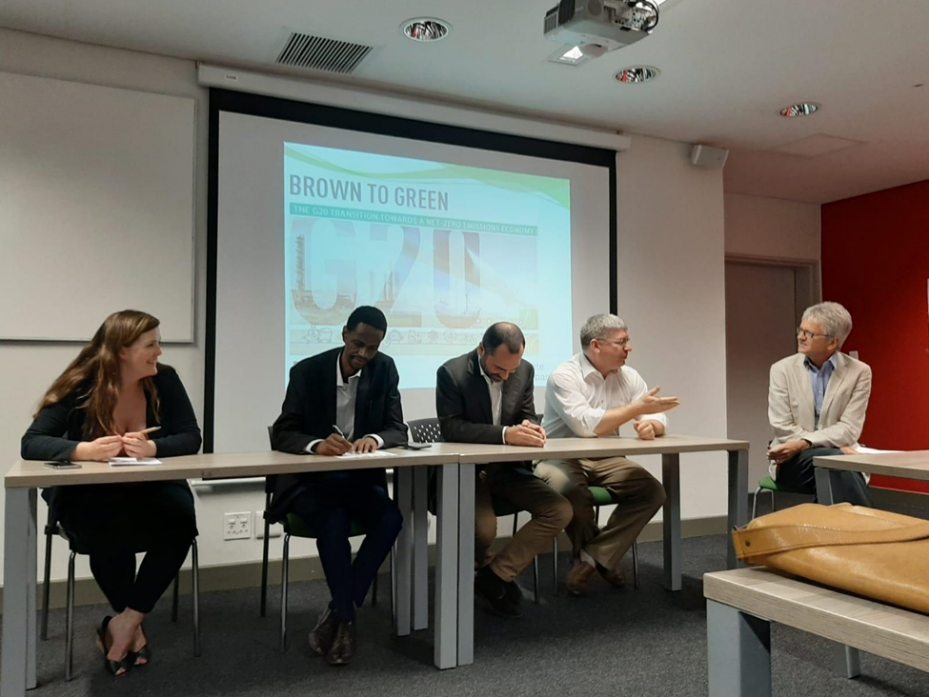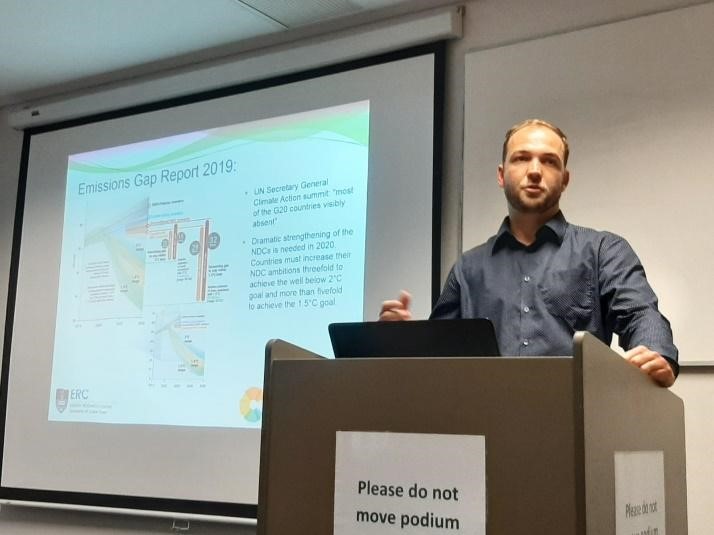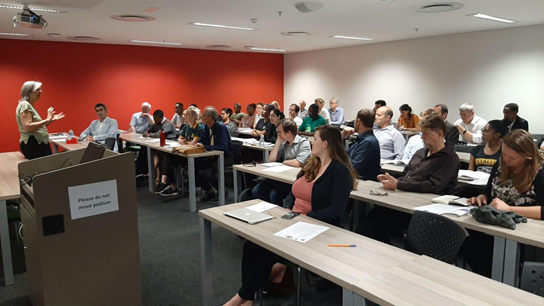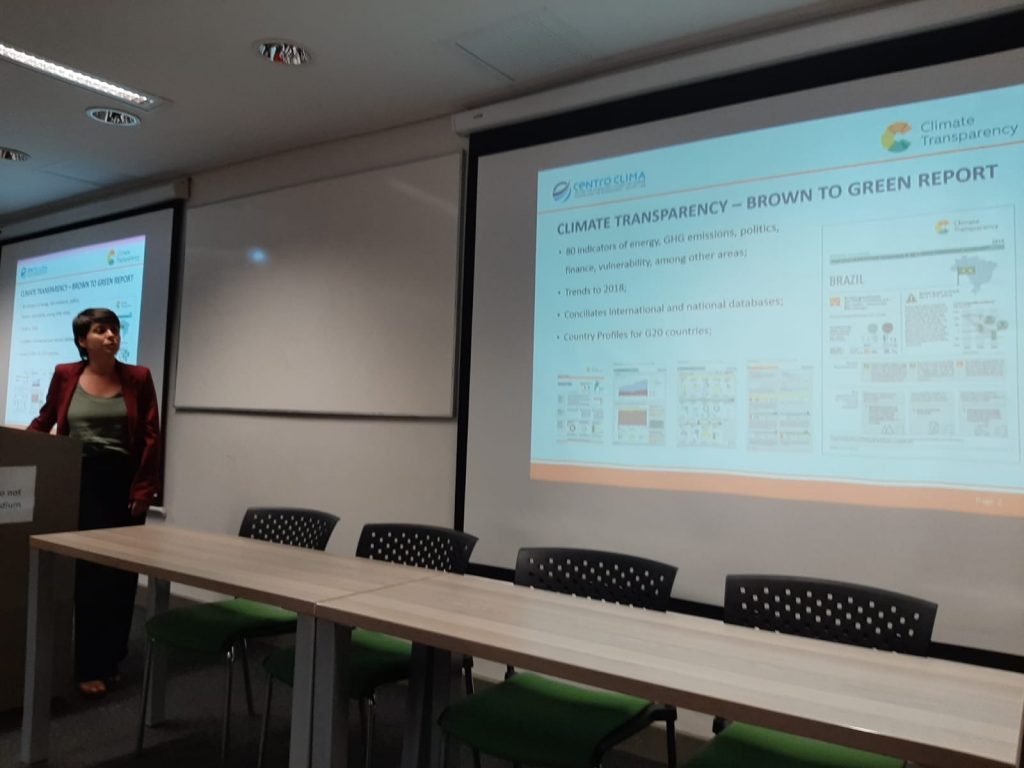The Energy Systems Research Group (ESRG) at the University of Cape Town, previously part of the Energy Research Centre, and the Embassy of France in South Africa, together with Climate Transparency and the international IMACLIM research network organised an evening of talks and discussion on climate policy and economic development with South African and international experts, which took place on 28 November 2019 in Cape Town.
At the event the Energy Systems research group presented the Brown to Green Report 2019: Covering 80 indicators, the 2019 Brown to Green report is the world’s most comprehensive review of G20 climate action, with concise and comparable information on country mitigation action, finance and climate vulnerability.
The event kicked off with opening remarks from Laurent Amar, the Consul General of France to Cape Town, ESRG Director Prof. Harro Von Blottnitz as well as UCT’s Vice-Dean of Research & Internationalisation Prof. Sue Harrison.
Bryce McCall from ESRG presented highlights from the Brown to Green Report 2019 and how a variety of the G20 countries compare on mitigation, finance, and adaption in the context of the Paris Agreement. In his presentation Bryce McCall discussed South Africa’s transition efforts towards carbon neutrality. The Brown to Green Report advocates that all of the G20 countries need to dramatically strengthen NDC ambitions if they are to achieve the below 2°C goal. In the case of South Africa, he reported that emission reduction has to reach below 360 (by 2030) and 231 (by 2050) MtCO2e in order to be within its fair-range of 1.5°C IPCC scenario compatibility. The country’s current NDC only limits emissions to between 415 (2025) and 631 (2030) MtCO2e (excluding land use).
Mr. McCall delved into the current position of the country’s energy sector and its contributions to national emissions whereby 13% is from the transport sector alone and the share of total energy-related emissions in 2018 included a 16% contribution by the industrial sector and 53% from electricity and heat. He expressed that the country has one of the highest carbon intensities (at 73 tCO2, emitted per unit energy supply dropping slightly (-4%) between 2013 and 2018) attributed by the high fossil fuels share within its energy mix, which is above average compared to other G20 member states. As a result, the country has to decarbonise the electricity sector by 2050, with coal having to be phased out no later than 2040 from power sector for more promising renewable options.


